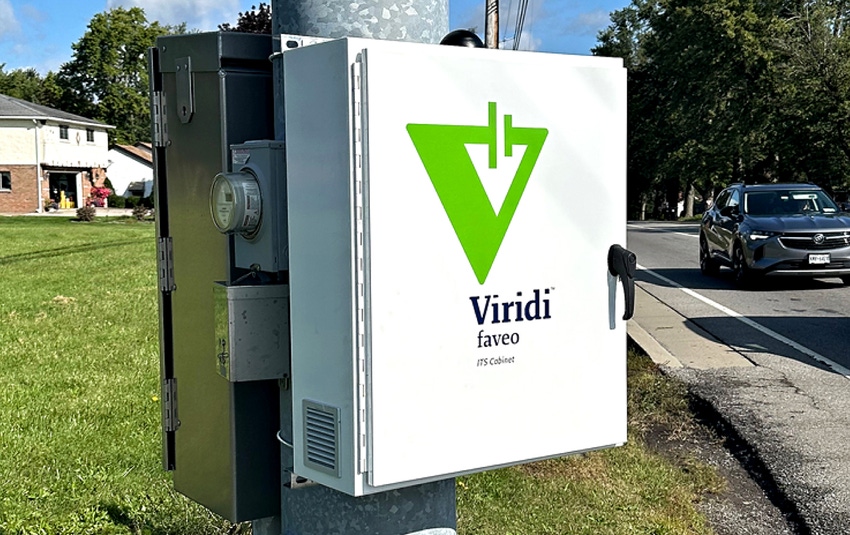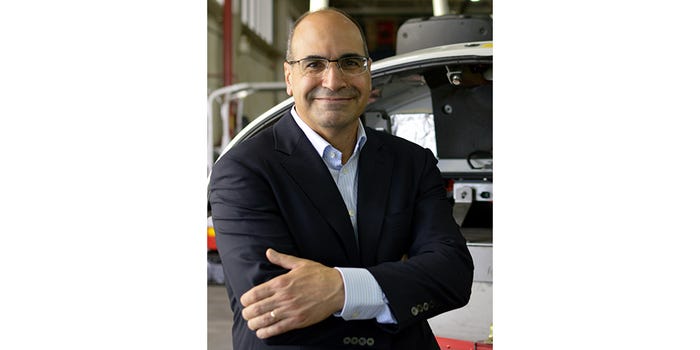Fire-Preventing BESS Uses Modular Approach
Viridi’s failsafe lithium-ion battery energy storage systems prevent thermal runaway.
February 6, 2024

This decade has been called lithium-ion’s decade, yet there are significant threats, namely thermal runaway and the resulting propagation that typically occur during a thermal runaway event. One battery fire can ignite a multitude of passionate skeptics eager to spread half-truths, particularly in an election year.
Which is why guaranteeing battery safety remains paramount. “As 10-minute EV fast charging becomes more prevalent, there's a heightened risk of lithium-ion battery fires. It is crucial to establish rigorous safety standards for battery infrastructure, underscoring the importance of widespread failsafe battery technology to meet the increasing demand for EVs nationwide.”
That’s according to Jon Williams, chief executive officer of Buffalo, NY-based Viridi, who not only outlines the problem, but sets the stage for Viridi’s solution, what the company calls “anti-propagation thermal management.”
The core of Viridi's contribution to widespread failsafe battery technology lies in the construction of its battery energy storage systems (BESS) on a modular basis, Williams said. This modular approach allows for versatile configurations, catering to various mobile, stationary, and semi-stationary use cases. Such adaptability is pivotal in addressing diverse challenges and scenarios, he noted.

Viridi CEO Jon Williams. Image courtesy of Viridi
While details are limited on the company’s patented development, Viridi’s anti-thermal propagation system is supported by four pillars:
Passive design for enhanced safety; no external fire suppression required
Propagation prevention at the cell level
Tested to indoor standards
No smoke or fire
Built on history
Founded in 2009, Viridi’s unveiled its first Green Machine, “Frankenstein”, an excavator powered entirely by battery-electric, in 2010.This, the company says, was the first step toward electrifying the future of industrial equipment.
Three years later, Viridi made what it calls its “revolutionary Battery Energy Storage Prototype technology” public to showcase its application in commercial settings (offices, schools, communities, events, and emergency management setups, to name a few). Fast-forward to 2021, and the company was refining and validating its anti-thermal propagation designs with in-house tests in subpacks. Venture capitalists began taking note. Viridi raised $94.7 million in its Series C round led by Tom Golisano’s Grand Oaks Capital that same year. Also in 2021, Viridi committed to 100% recycling for all its end-of-life cells through a partnership with Toronto-based Li-Cycle.
Red light, green light
As an example, one noteworthy application of Viridi's technology is in traffic control systems, where power interruptions can lead to congestion and accidents. Viridi's Faveo BESS ensures uninterrupted power and mitigating the risks associated with power disruptions in such critical infrastructure.
Viridi's mobile units showcase the resilience of failsafe batteries in challenging environments. From powering events like the Burning Man festival in the Black Rock Desert to supporting the Pike’s Peak car race and contributing to the cleanup efforts of incidents like the East Palestine, OH, train derailment, Viridi's mobile energy storage units deliver reliable and clean power where needed most.
Lastly, Viridi's permanent and semi-permanent installations play a crucial role in safeguarding energy-sensitive assets for facilities. These installations not only enhance protection, but also contribute to emission reduction and cost savings through effective load management. Essentially, any scenario demanding safe energy management finds an optimal solution in Viridi's BESS equipment.
“Battery Energy Storage Systems (BESS) play a crucial role in expanding the influence of carbon-free renewables,” Williams adds. “By storing excess energy generated during periods of abundant sunlight or wind, BESS can then be utilized when these resources are not available.
“This capability also plays a significant role in optimizing energy demand on the grid. By charging during off-peak hours and discharging when the grid is congested, BESS contributes to a more efficient utilization of energy resources, ensuring a balanced and resilient electrical infrastructure. Additionally, these systems support environmental sustainability by replacing more polluting and noisy alternatives, such as diesel generators.”
Asked to further define the benefits of Viridi’s efforts and how are they being measured, Williams pointed to environmental, economic, and power resilience: “The benefits include a reduction in greenhouse gas and other emissions, which can be calculated based on the amount of fossil fuel or peak-hour energy avoided; reduced costs by avoiding peak-hour charging and participating in demand management programs; and increased resilience, which can be measured in terms of reduced power upsets.
About the Author(s)
You May Also Like





